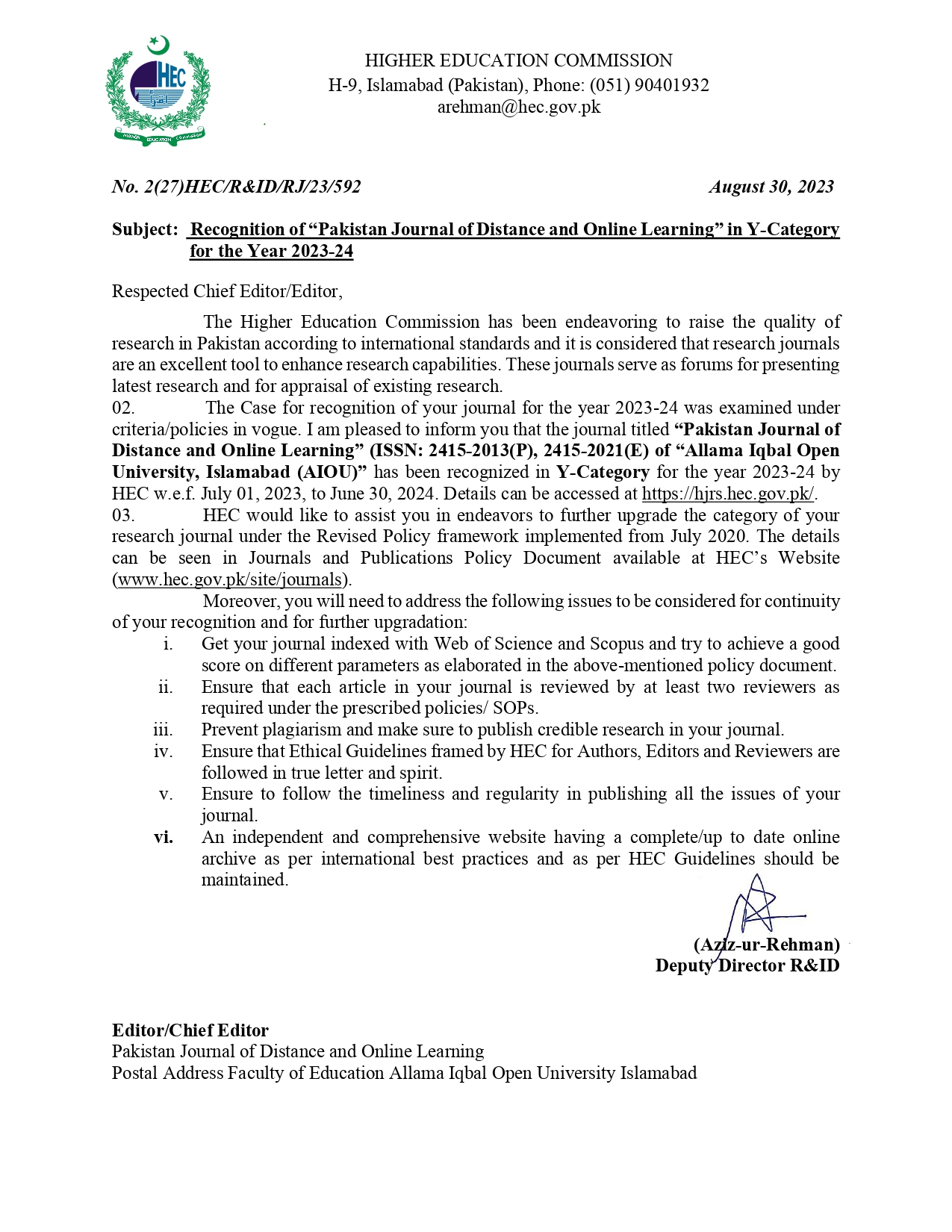E-Learners’ Self-efficacy for Online Courses: Self-efficacy for IT Use as a Predictor for Academic Self-efficacy
Saleha Ali
DOI:
https://doi.org/10.30971/pjdol.v7i2.246Abstract
The purpose of current study was to investigate the level of students’ self-efficacy, specifically the use of Information
Communication Technologies and performing academic tasks for online courses. A quantitative descriptive survey was conducted to explore the problem. The participants were selected from two departments (Arts and Computer Science) of a university. All the students from the Department of Arts were included in study sample and non-proportional random sampling technique was used for selecting participants from the department of CS. In this way, self-tailored five-point Likert Scale was distributed to 603 sampled participants. The study concluded that elearners’ had moderate level of self-efficacy to perform academic tasks
and their level of self-efficacy to use ICT was at higher level. There was highly significant positive relationship between academic self-efficacy and self-efficacy to use ICT.The study found that the self-efficacy for IT use is a good predictor of academic self-efficacy.
Downloads
Downloads
Published
Versions
- 2023-03-14 (2)
- 2023-02-02 (1)
How to Cite
Issue
Section
License
Authors may photocopy and use their articles without any permission/fee for noncommercial purposes as specified by the Creative Commons Attribution-NonCommercial 4.0 International License. For using work for commercial purpose, please contact on editor.pjdol@aiou.edu.pk .









